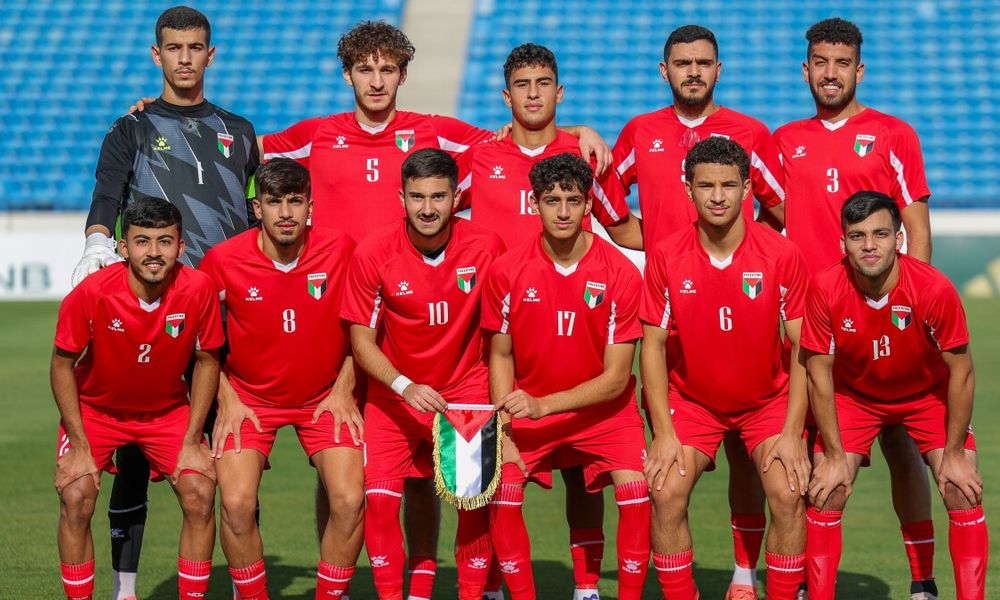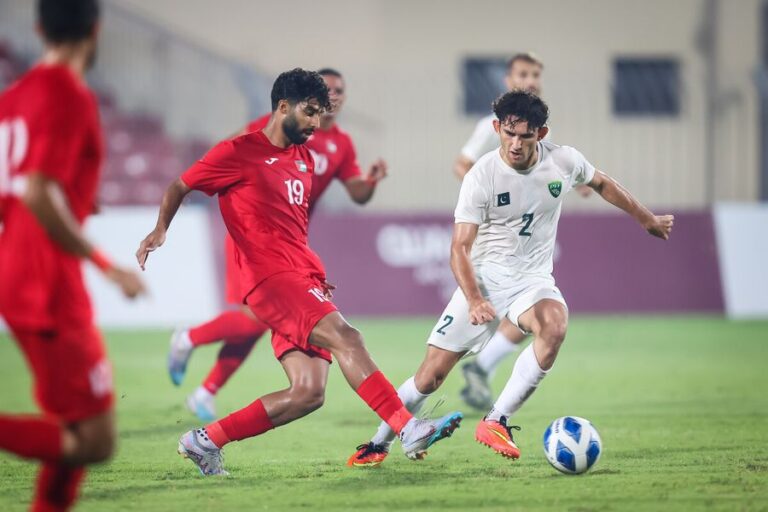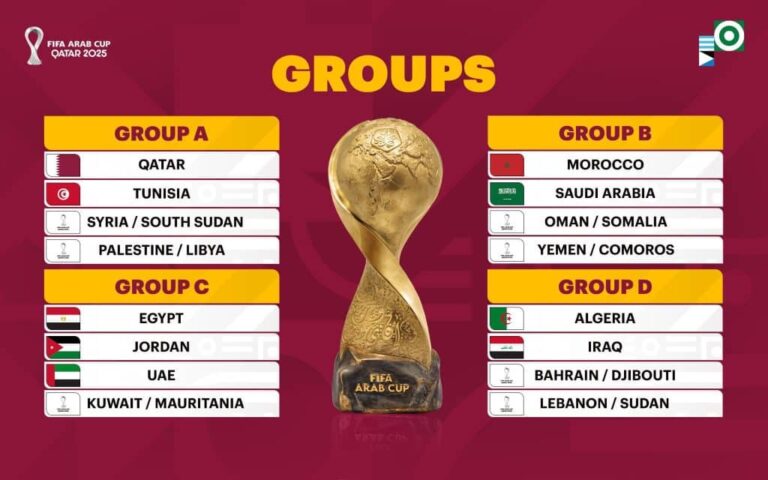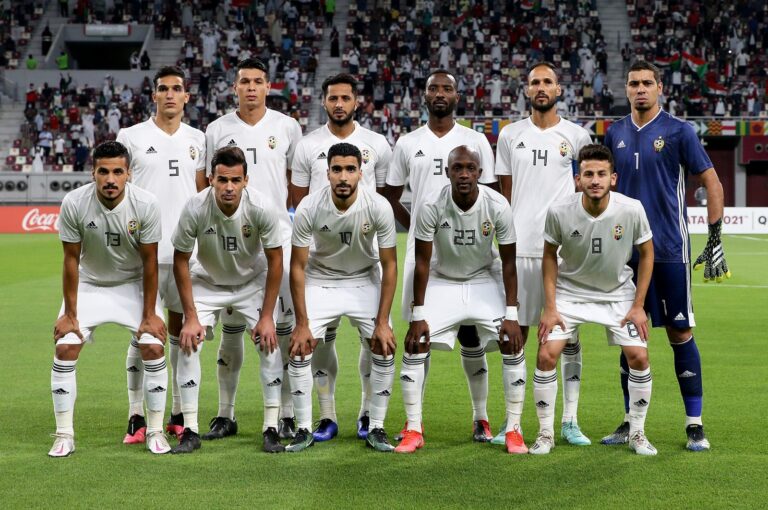Receive news, analysis, and other content straight to your inbox by subscribing to Football Palestine (free or paid), here.
Plus ça change. Palestine has failed to qualify for yet another youth tournament- this time failing to qualify for the U20 Asian Cup for the tenth time since first entering the competition in 2002.
For all of Palestine’s success at senior level, the organization has struggled to translate that into grassroots success. Palestine are one of only 14 nations to have qualified for four successive Asian Cup dating back to their debut at Australia 2015. Those four successive qualifications means Palestine has played in 50% of the continental showpieces since becoming a member of the AFC in 1998.
Palestine’s lone success at youth level- if you can even call it that- was the quarterfinal run at the 2018 U23 AFC Asian Cup. That generation featured many current national team stars including Oday Dabbagh, Mohammed Rashid, Mahmoud Abu Warda, Shehab Qunbar, Musa Farawi, and Michel Termanini. In addition to those names another five players went on to debut at senior level: Goalkeeper Naim Abu Aker, Mohammed Darwish, Mahmoud Yousef, Saado Abdel Salam, and Ahmed Qatamish.
Even though Palestine failed to lift the title in China (that honor went to Uzbekistan) they won in the long term gaining six mainstays of the national team and handing senior debuts to half the outfielders- all of whom featured more than once.
Therein lies the paradox of youth tournaments. In the big picture, winning is not the most important thing- developing players is. That said, if you fail to qualify for finals you are inhibiting growth because qualification is truncated in Asia to three or four games in a ten day period. In Europe, teams play a dozen games over the course of a year giving teams more time to gel and for talent to gradually develop and graduate to the senior team.
There were signs that Palestine was progressing and that a breakthrough was imminent. The team advanced out of the group stages at the WAFF Championship earlier this month. Two years ago many players on this very team made a run to the Arab Cup semifinals.
Palestine used to exit these tournaments without winning a game but they had registered wins in their last two campaigns.
That came to a screeching halt last week.
Assessing the Damage
Palestine failed to win a game. They scored a meager two goals in four games and registered two draws- against Afghanistan and Macau. It’s safe to say that on paper the 2025 U20 qualifying campaign will be one to forget.
That said it nearly ended differently. There were critical moments in the first game where refereeing produced strange decisions that favoured Saudi Arabia. Neither side played particularly well but Saudi Arabia opened the scoring in the second half and saw out the 1-0 result.
Palestine made things harder on themselves when Universidad de Concepción defender Lucas Thaljieh suffered a rush of blood to the head and got himself sent off. In spite of the numerical advantage the team had chances to equalize in the final 15 minutes of the game.
Qualifying hopes suffered a hammer blow in the following game against Macau. Profligate finishing meant Palestine never added to their early lead. Goalkeeper Rami Jabareen who had been so good for the team made a critical error to allow Macau to equalize at the stroke of halftime.
The team again showcased its indiscipline when Zacarias Abuhadba saw red for stamping on his Macanese opponent following a foul. Palestine pushed but the match ended 1-1.
Fortune smiled on Palestine in their match against Australia with the team scoring a beautiful team goal in the first ten minutes. Australia scored just before half time to make it 1-1 and rode their luck to see out a 2-1 victory with a penalty call at the death waived away by the referee.
Palestine could not mount a proper response to three excruciating results against Afghanistan and settled for a 0-0 draw.
There is plenty of blame to go around. Firstly the players who picked up needless red cards deserve to be reprimanded. The manager, Sajed Karkara deserves his share of the blame for failing to instill discipline in the squad and for not being able to coax more out of a talented group of players. Qualifying from a group that included Saudi Arabia and Australia was a tall order but finishing third was absolutely paramount for future seeding.
That said, it makes very little sense to focus on the minutiae that led to this latest failure. The one constant is the lack of a developmental plan for youth national teams. Everything is thrown together at the last minute and while the gap has been closing it is the details that make the difference.
One might think a lack of resources and an unstable situation in the country prohibits any sort of success from being achieved but Yemen have qualified for three of the past five tournaments. That success was achieved whilst Yemen had to deal with a civil war, famine, and the suspension of the league.
No amount of foreign based talent will make up for the fact that these players join a team with no real plan. Until that changes do not expect a breakthrough for Palestine at youth level.
The U17 team will participate in qualification for the U17 Asian Cup later this month. Their group features Chinese Taipei, Iraq, and Uzbekistan. Expecting anything more than a solitary victory would be unrealistic. If anything the lack of a solid foundation for Palestinian football to build on should only be further testament to the achievements of the senior team for the last decade.




